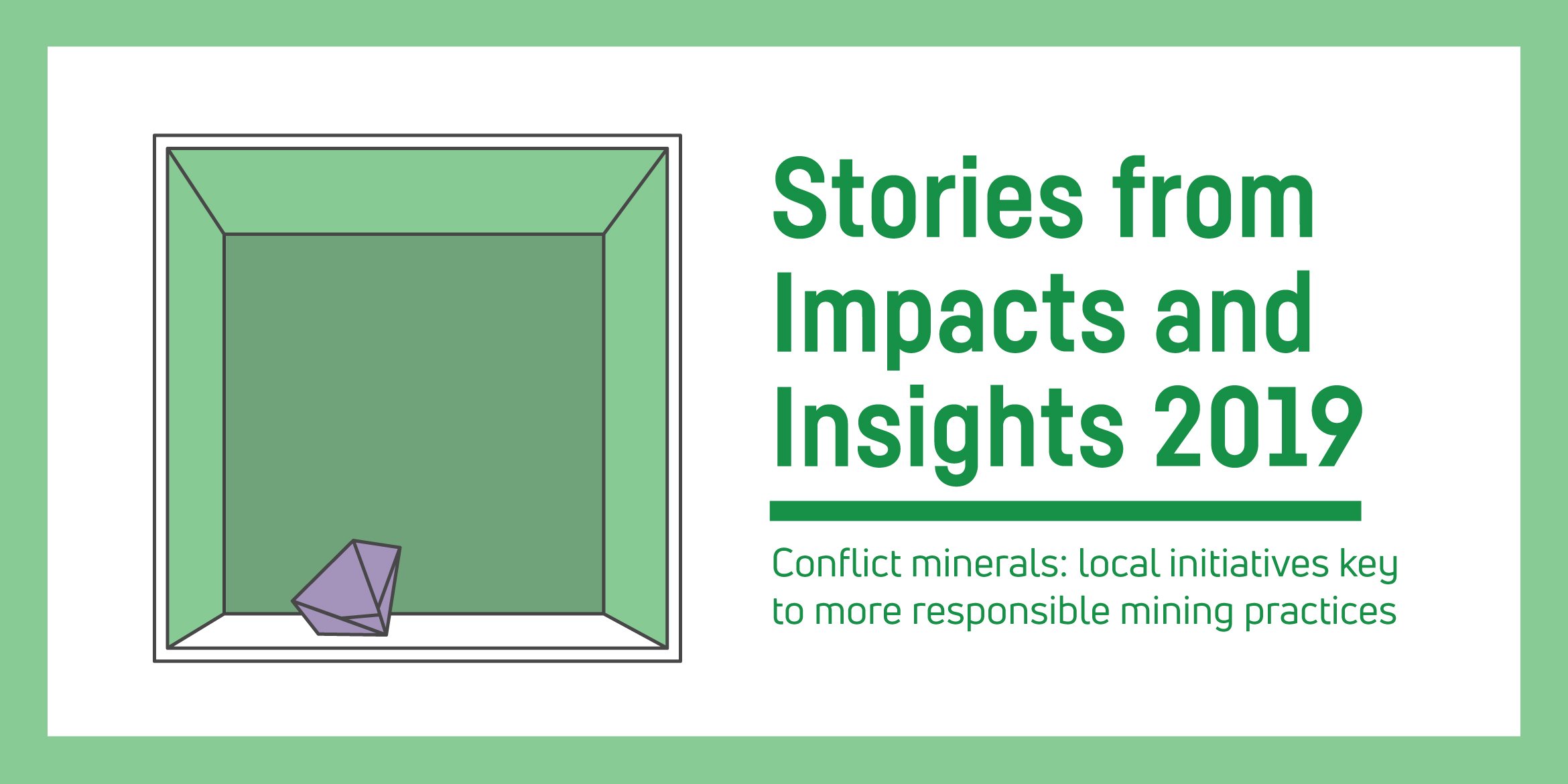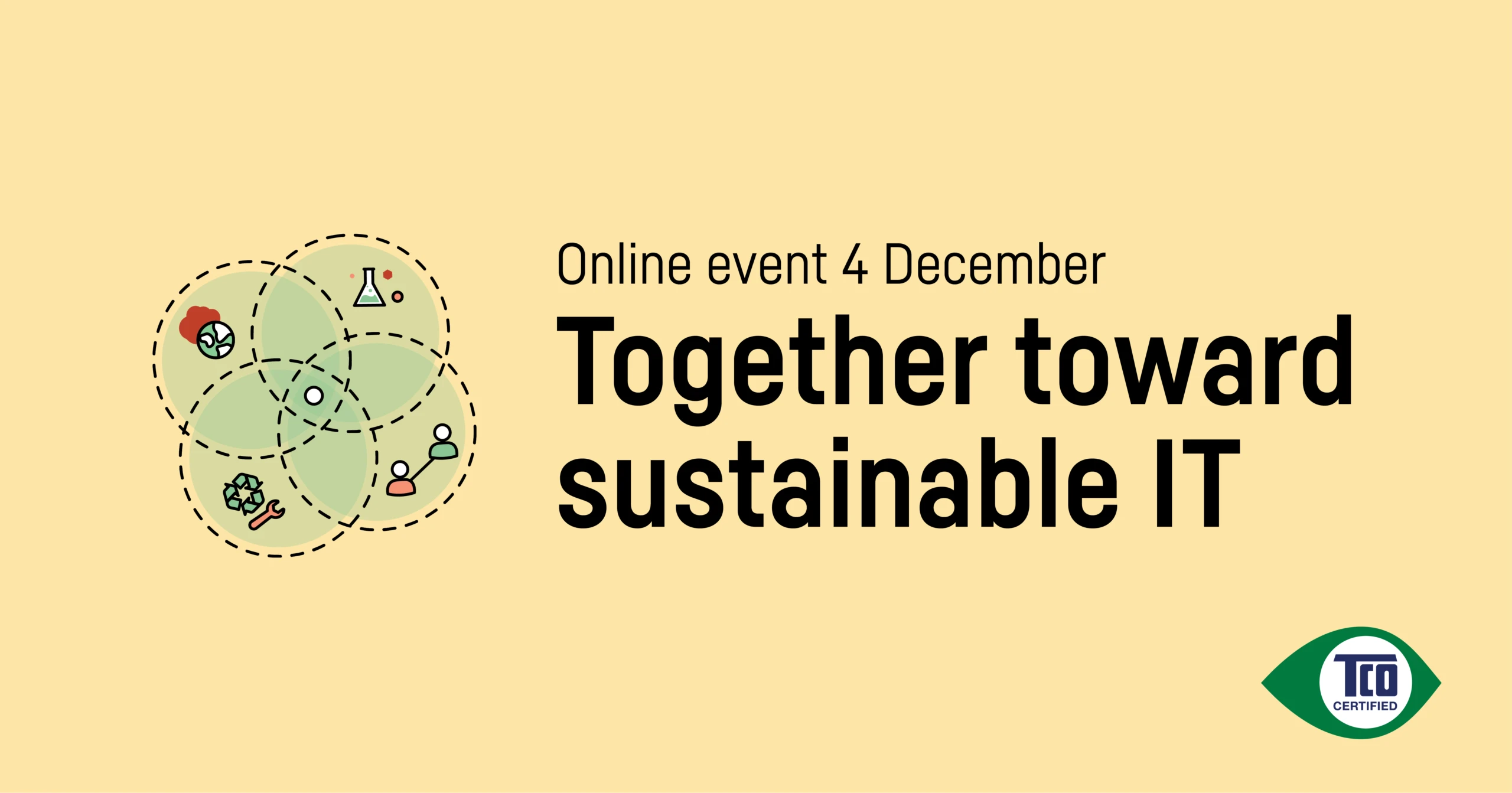Minerals such as tin, tantalum, tungsten, gold and cobalt are known to fuel conflicts and human rights abuses. Mining methods are often severely unsafe for workers. Clare Hobby, Global Director for Purchaser Engagement explains why multi-stakeholder engagement in local development programs is vital for improving life in vulnerable mining communities.
This text is an excerpt from the report Impacts and Insights 2019.

Clare Hobby, TCO Development
Forced labor, child labor, violence and corruption are continuing challenges for many mining communities, where militias and other armed groups control the oversight and output of largely artisanal mining operations. Working conditions are often unsafe, unregulated and lead to environmental degradation, while proceeds from mining operations are used to fund further conflict.
Conflict minerals are often traded illegally, and ruling militias frequently undermine peace efforts in order to maintain their dominance. The absence of a strong civil society and democratic, stable government leaves a void where these illegal organizations continue to operate, threatening both the environment and local populations.
Legislation and other regulations to address conflict minerals vary around the world. Beginning in 2010, U.S. publicly-listed companies and their supply chains have been required to disclose their source of conflict minerals in accordance with the Dodd-Frank Act section 1502, whilst companies traded in the rest of the world have no such requirement. EU regulation only impacts direct importers of ores and metals into the EU, leaving out the minerals found in manufactured products.
A global approach to responsible mineral sourcing
Clearly this lack of consistent regulation is problematic and indicates a need for a global, systematic approach to responsible mineral sourcing. TCO Certified drives more responsible mineral sourcing in all countries where the mining industry and trade are present. Suppliers must adopt a responsible approach to mineral sourcing, irrespective of where in the world they operate.
2015 marked the first set of conflict minerals criteria in TCO Certified. Brand owners had the option of either joining a multi-stakeholder group that operate or support in-region programs that work to support legitimate mining and local communities, or independently verify that their conflict mineral due diligence program is considered in line with the OECD due diligence guidelines.
“TCO Certified drives more responsible mineral sourcing in all countries where the mining industry and trade are present”
They also had to have a public policy for the responsible sourcing of conflict minerals (tantalum, tin, tungsten and gold), and communicate it to the supply chain. Our goal was to establish a baseline requirement for industry engagement in conflict minerals initiatives, and also to independently assess the status of due diligence processes declared by brand owners.
Multi-stakeholder action is key to improving working standards
Through multi-stakeholder, in-region initiatives, governments, industry and civil society can join together and work to establish a legitimate mining industry. These kinds of initiatives support local mining communities, improving working standards and protections at the mines. Through these initiatives, the private sector can go beyond legislation, share expertise and give financial support to in-region programs.
What it takes — an industry-wide approach to due diligence and risk reporting
Effective due diligence that directly connects a product with the source of its mineral content can take years, and includes the assessment of potentially hundreds of suppliers that are involved between mineral extraction and final assembly. Our view is that due diligence is best approached from the perspective of shared, industry-wide commitment over the longer term. As with most supply chain responsibility efforts, the focus should be on continuous improvement. A coordinated, standardized approach is essential for driving widespread, positive impacts more efficiently.
Result: Engagement in local initiatives doubles in three years
During 2015-2018, there was a clear increase in involvement among IT product brand owners with IT products certified according to TCO Certified. Independent verifiers confirmed that, by the end of 2018, all of the 23 brand owners with certified products had a public conflict minerals policy and the number of brands engaged in multi-stakeholder, in-region initiatives had more than doubled from 2015.
Real impacts such as this often require a collective effort. In this way, TCO Certified goes where national legislation can not, by engaging companies globally and influencing local governments and authorities to do more to protect human rights in mineral supply chains
Next step: Cobalt comes into focus
Demand for cobalt is rising quickly, in line with our increased use of mobile devices, electric vehicles for example and for some years there has been a growing awareness of the situation in cobalt mines, with human rights abuses uncovered in the Democratic Republic of Congo. However, it is not yet included in the definition of conflict minerals, and therefore not covered by existing legislation.
In the absence of relevant regulations, we have added cobalt to our conflict minerals criteria, meaning that brand owners must include cobalt take responsibility for cobalt, irrespective of where in the world they source the mineral.
In the latest generation of TCO Certified, we have been able to raise requirements on industry from a minimum level of in-region due diligence engagement to a more rigorous level. Now that baseline brand owner engagement is more widespread, very brand owner is now required to start structuring a due diligence process based on the OECD due diligence guidelines toward conflict minerals and cobalt, even though not required by law. They must also engage in global multi-stakeholder initiatives that work for the responsible sourcing of these minerals.
By asking for TCO Certified, you have a direct impact
The progress made in responsible mineral sourcing is a good example of how purchaser engagement can drive sustainability in the IT product supply chain.
Growing concerns among purchasers about the situation in the Democratic Republic of Congo and the connection to IT products they buy was one of the drivers behind including conflict minerals criteria in TCO Certified. Purchaser demand for more sustainable, certified IT products is also one of the main reasons to why IT brands decide to develop more sustainable practices and apply for TCO Certified.”
“Purchaser demand is one of the main reasons to why IT brands decide to develop more sustainable practices”
Keys to a more sustainable IT industry
This is an extract from the report Impacts and Insights 2019. The report measures the sustainability progress among brand owners with IT products certified according to TCO Certified, and presents keys to solving the most pressing sustainability challenges in the IT product supply chain.




